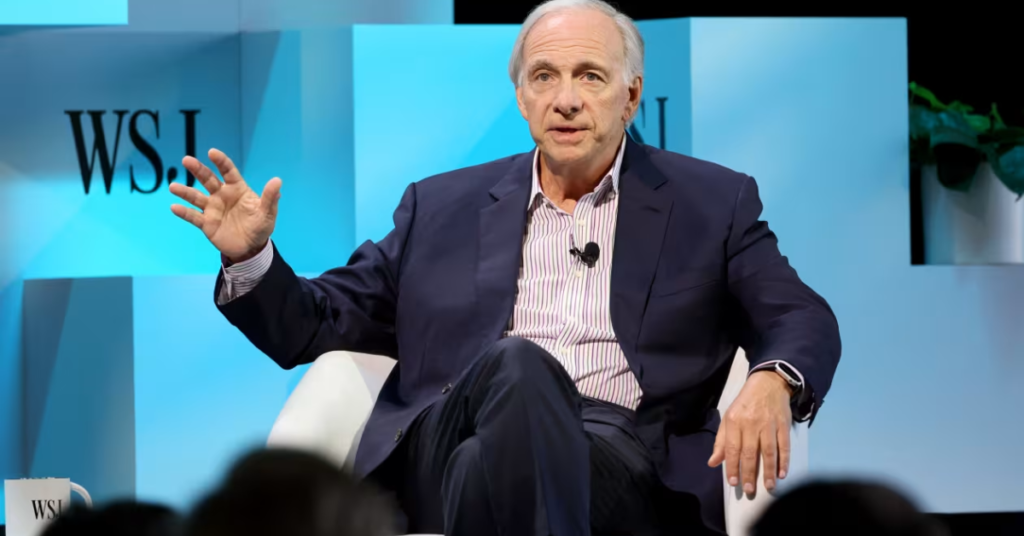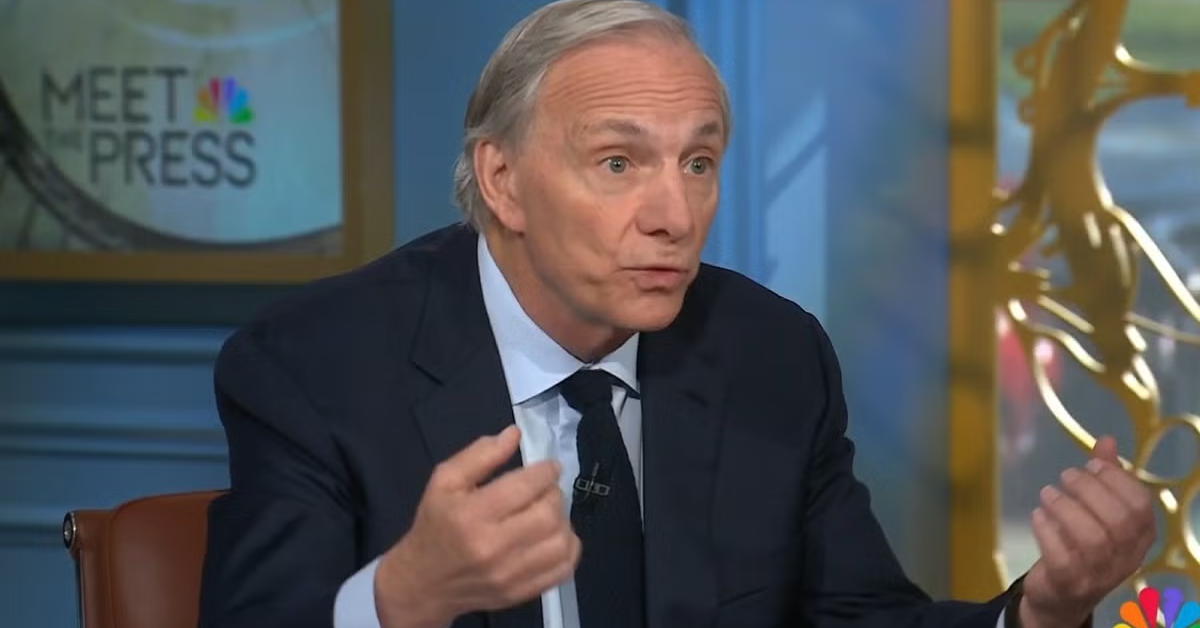Billionaire investor Ray Dalio has raised serious concerns about the U.S. economy, warning that the country could face “something worse than a recession” as a result of President Donald Trump’s trade policies. Dalio, the founder of Bridgewater Associates and one of the world’s most influential hedge fund managers, expressed his worries in a recent interview on NBC’s Meet the Press, where he shared his thoughts on the current state of the global economy.
At 75 years old, Dalio has seen his fair share of financial turmoil, and his remarks carry significant weight in the world of finance. Speaking about the economic situation in the U.S., Dalio said, “I think that right now we are at a decision-making point and very close to a recession.
And I’m worried about something worse than a recession if this isn’t handled well.” Dalio’s comments come at a time when the world’s markets are experiencing heightened volatility, largely driven by the U.S. government’s aggressive tariff policies, which include a controversial 145% increase in tariffs on Chinese goods.
According to Dalio, while a typical recession is defined by two consecutive quarters of negative GDP growth, the situation facing the U.S. economy today is much more complex and potentially more dangerous. “A recession is two negative quarters of GDP and whether it goes slightly there. We always have those things. We have something that’s much more profound,” Dalio explained.
He went on to describe the current economic challenges as a “breaking down of the monetary order.” Dalio believes that the U.S. is on the verge of a fundamental shift in how money is managed globally, driven by unsustainable government spending and the financial consequences of ongoing trade disputes.
Dalio’s remarks are particularly relevant given the recent turbulence in global stock markets, which has been largely influenced by Trump’s trade policies. The U.S. president’s tariffs on Chinese goods, along with other trade-related decisions, have sparked fears of a trade war between the world’s two largest economies.
As markets reacted to these developments, Dalio warned that the fallout could be more significant than the usual economic slowdowns seen in past recessions. “We are going to change the monetary order because we cannot spend the amounts of money,” Dalio said. This change, according to Dalio, could lead to a crisis much worse than a typical recession, particularly if the current trajectory of U.S. trade and fiscal policy continues unchecked.
Dalio also drew historical parallels between today’s global situation and the economic conditions of the 1930s. He noted that the world is experiencing “profound changes in our domestic order … and world order,” factors that could disrupt the global financial system in ways that could exacerbate existing problems.
“I’ve studied history and this repeats over and over again. So if you take tariffs, if you take debt, if you take the rising power challenging existing power, if you take those factors and look at the factors, those changes in the orders, the systems, are very, very disruptive,” Dalio explained. He believes that these disruptions could result in consequences far worse than a recession, potentially triggering a global financial crisis if not addressed properly.
The hedge fund manager emphasized that the way the U.S. handles its current economic challenges will be crucial in determining whether the country can avoid a catastrophic financial collapse. Dalio believes that policymakers need to act quickly and responsibly to reduce the U.S. budget deficit, which has been a growing concern for several years.

He warned that if the deficit continues to rise without intervention, the U.S. could face a severe supply and demand imbalance in the debt market, which could lead to a more intense economic downturn. “If the budget deficit can be reduced to 3% of GDP, it will be about 7% if things are not changed.
If it could be reduced to about 3% of GDP, and these trade deficits and so on are managed in the right way, this could all be managed very well,” Dalio said. However, he stressed that if these issues are not addressed properly, the consequences could be dire.
Dalio’s warning highlights the urgency of finding a balanced approach to fiscal and trade policy. He urged members of Congress to take what he calls the “3% pledge”—a commitment to reducing the national budget deficit to 3% of GDP. If this pledge is not taken, Dalio fears the U.S. could face significant economic challenges that go beyond a typical recession. He explained that this could lead to serious issues in the debt market, with far-reaching consequences for the U.S. economy.
In discussing the impact of Trump’s tariff policies, Dalio acknowledged the need to build manufacturing and create jobs within the U.S. He recognizes that such efforts could be beneficial for the U.S. economy in the long term. However, Dalio emphasized that how these goals are achieved is just as important.
“Whether that’s done in a practical way, whether that’s done in a stable way, or in a way with quality negotiations versus a chaotic and disruptive way… makes all the difference in the world,” Dalio said. This comment underscores the importance of thoughtful, strategic policy decisions over impulsive and disruptive actions that could ultimately undermine the broader goals of economic growth.
Despite President Trump’s decision to temporarily freeze tariffs at 10% on all U.S. imports, except for those from China, for 90 days, Dalio and other financial experts argue that the damage may already have been done.
The trade war and its associated tariffs have led to growing concerns about “rapid de-dollarisation,” a phenomenon in which countries shift away from using the U.S. dollar in international trade. This shift could undermine the dollar’s status as the world’s reserve currency, weakening its value and creating additional challenges for the U.S. economy in the future.
Dalio’s warning comes at a time when many Americans are increasingly concerned about the state of the economy and the potential long-term effects of the ongoing trade disputes. While there are opportunities for policymakers to steer the economy in a more stable direction, Dalio believes that time is running out. If the U.S. continues on its current path, the country may find itself facing an economic crisis much worse than a recession, with far-reaching implications for both the U.S. and the global economy.
Ray Dalio’s warnings about the future of the U.S. economy should not be taken lightly. With growing concerns about trade wars, rising debt levels, and the potential for a breakdown in the global monetary system, Dalio’s insights remind us of the delicate balance needed to avoid a financial catastrophe. As the U.S. grapples with these challenges, the decisions made today will shape the economic future of the country and the world.
Disclaimer: This article has been meticulously fact-checked by our team to ensure accuracy and uphold transparency. We strive to deliver trustworthy and dependable content to our readers.








